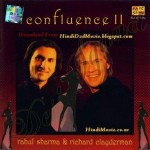
I just came to read a blog post that discusses the linguistic chauvinism and about the need of preserving a certain language. The language in question was Malayalam. The author of the post obviously got angry by the comment of a Government school teacher that a criminal case should be booked against the parents who send their kids to English medium schools. And I felt that both the comments from professor and the blogger have too much emotional elements in it.
The comment from the professor is of course stupid and irresponsible. Capital punishment to parents for sending their kids to the school of their choice is more of a laughable view point. However, in the process of placing counter arguments I feel that the blogger too has got emotional. There were a couple of questions raised in the post:
1) I speak malayalam, and read/write it with some difficulty, yet I do not see the point in learning poetry and prose! I mean, what is the whole idea?
A language is not just a mere tool for communication. There is a huge wealth of knowledge base that comes with it which is perfected across several years by several generations and passed on from generation to generation. This wealth of knowledge is recorded in various forms – Literature (and by literature, I am not referring to fiction only), proverbs, folk songs etc. Most of these forms contribute to a historical record of the then social system, society, eco system, weather and life in general. These have time and over shaped up the culture and our social and individual identity.
Now a possible question: Can the same not be translated to a globally accepted language, like English, so that it will be available to all those who are interested and they will not have to face the difficult of learning a particular language?
As well know, the language loses it’s beauty and more importantly the context, when it is translated. To understand something that is written in a language with it’s original beauty and context, you need to read it in the language in which it is written. The translations can have several interpretations and can be politically abused.
2) Languages evolve, but do they get killed?
Speaking of the death of a language, here is a quote from Wikipedia:
The most common process leading to language death is one in which a community of speakers of one language becomes bilingual in another language, and gradually shifts allegiance to the second language until they cease to use their original (or heritage) language. This is a process of assimilation which may be voluntary or may be forced upon a population. Speakers of some languages, particularly regional or minority languages, may decide to abandon them based on economic or utilitarian grounds, in favour of languages regarded as having greater utility or prestige.
Ironically, the languages which even evolve in itself can get killed by the same people who use it. The next question would be whether we need to preserve a language which is not in need by the same people who use it. But there comes the importance of preserving the knowledge treasure that the language has generated. And whether a person should acquire this knowledge or not is a personal choice, but there is no doubt that we don’t have any right to deny that treasure to the future generations to come, hence the need of preseverance.
English medium education and Malayalam
Learning English is essential these days to compete in the globalized world. I do not question that (and the sad state of affiars in Kerala state proves that even the English medium schools are not helping our children on using that language properly). But the news that the children being punished or fined for speaking Malayalam in the school premises do not leave a good impression on the kind of English education system that we have. This leaves an impression in the children that speaking Malayalam is a henious thing to do and they would begin to see their own language as third-class (which will then lead to view one’s own culture and tradition as third-class).
Linguistic chauvinism
Too much of love for anything that we hold dear to our hearts could make us extremists. So we need to take good care of the whole language-love not leading to regional or linguistic chauvinism. There is nothing wrong in taking pride of one’s own language or culture but when it turns to establish that only ours is supreme, it will cause trouble. That is what we see from the recent examples of social troubles caused by Maharashtra Navnirman Sena during anti-North Indian campaign or Kannada Rakshana Vedige during Raj Kumar’s capture and death.
[Image source: Wikipedia]






